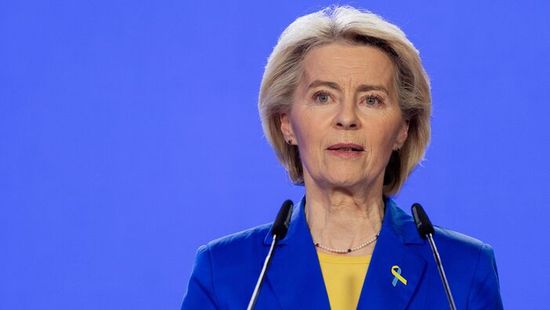Orbán móresre tanította Von der Leyent: megmutatta neki, mire képesek a magyarok (VIDEÓ)

„A szuvereintás jobb üzlet” – jelentette ki a Nézőpont Intézet vezetője.

Europe must choose, as De Gaulle said in 1969, between progress and upheaval.
„Today Greece - under a resolute government and against heavy internal protest - has met the onerous conditions imposed on it. But for what? For loans that are immediately recycled to the European banks, adding nothing to Greece's prospects except more debt? This will not lower interest rates, restore growth, or bring success to ongoing internal reforms. It is an intolerable situation and it will not continue for long.
Along one road there lies a future of defaults, panic, dissolution of the eurozone, and hyperinflation in the exiting countries, with a collapse of the export markets for those that remain. The final consequence will be large population movements - as happened from the American South. For if Europe insists on reducing its periphery to poverty, it cannot expect those affected to sit still and accept their fate.
Along the other road lies the assumption of common responsibilities for sustained convergence, based on a new economics of mutual support. Along this path sovereign debts below the Maastricht ceiling will be taken over and converted to European bonds and there will be a public-private investment program to restore growth and employment - as some of Europe's wisest leaders demanded in a manifesto just a few days ago. There will follow in due course the constitutional reforms needed to adapt Europe and its policies to the conditions of the post-crisis world.
Europe must therefore choose, and soon, as De Gaulle said in 1969, »between progress and upheaval«. »Entre le progrès et le bouleversement.«”